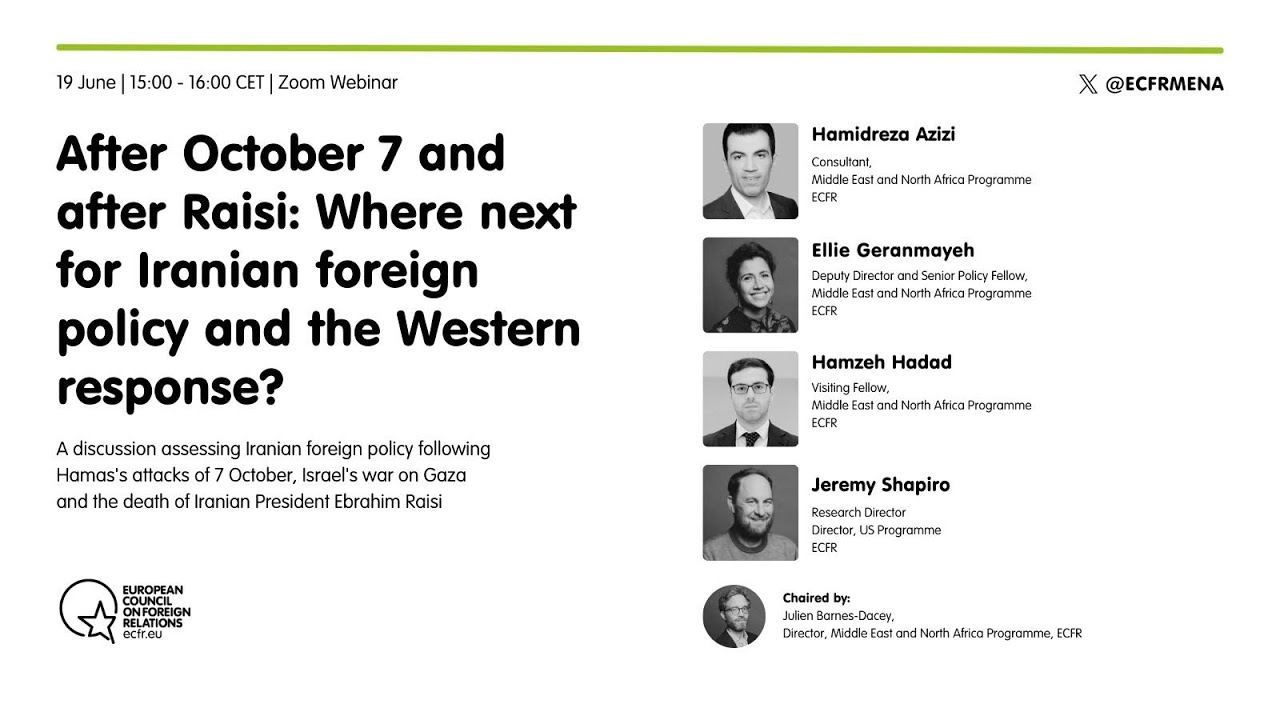After October 7 and after Raisi: Where next for Iranian foreign policy and the Western response?
A discussion assessing Iranian foreign policy following Hamas’s attacks of 7 October, Israel’s war on Gaza and the death of Iranian President Ebrahim Raisi
Guests
- Hamidreza Azizi, Consultant, MENA Programme, ECFR
- Ellie Geranmayeh, Deputy Director, MENA Programme, ECFR
- Hamzeh Hadad, Visiting Fellow, MENA Programme, ECFR
- Jeremy Shapiro, Research Director and Director, US Programme, ECFR
Chaired by
- Julien Barnes-Dacey, Director, MENA Programme, ECFR
Since Hamas’s attack on Israel and Israel’s subsequent war on Gaza, the Middle East has experienced a dangerous cycle of escalation, with the longstanding confrontation between Israel and Iran and its proxies moving out of the shadows towards direct conflict. With the death of Iranian President and Foreign Minister, further uncertainties have been thrust into the equation. This discussion will assess the drivers of Iranian foreign policy, possible shifts with a new President, and the likely trajectory of Iran’s regional and nuclear policies. Are Iran’s hardline forces using current dynamics to further cement their hold on power? What are the broader implications for the region, as well as for the nuclear file, of current ongoing developments? How will Iran’s regional allies react to a possible peace plan in Gaza? And to the backdrop of forthcoming US Presidential elections, what should be expected of the US position and how should Europeans respond to safeguard key interests?
The discussion marks the launch of new policy papers by ECFR: Beyond proxies: Iran’s deeper strategy in Syria and Lebanon, by Hamidreza Azizi and Julien Barnes-Dacey, Proxy battles: Iraq, Iran, and the turmoil in the Middle East by Hamzeh Hadad, as well as the The Gaza Crisis: Mapping the Middle East’s Shifting Battle Lines.

